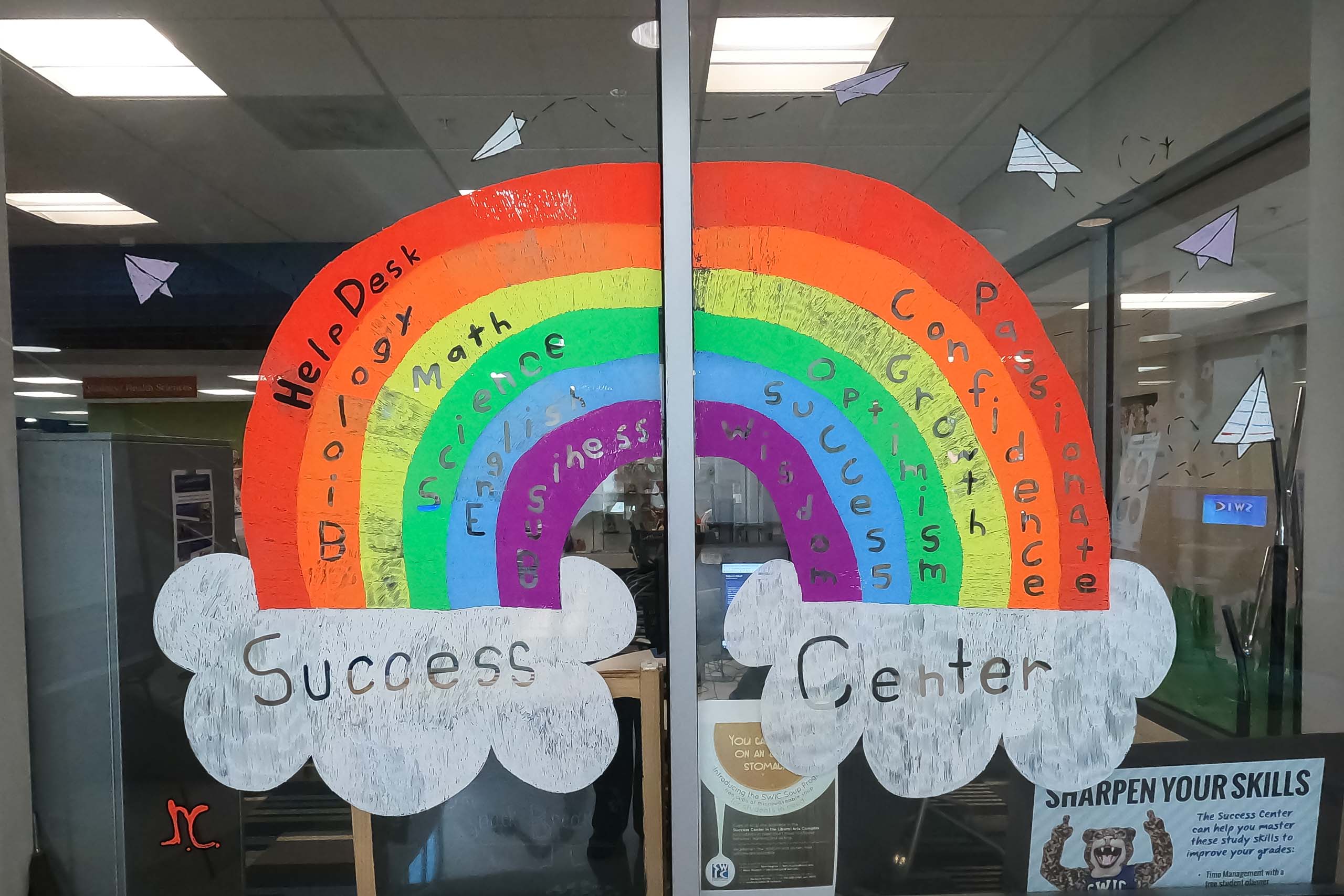Sometimes, on that freeway of life, we find that we would like to make a turn. For instance, it happened to Jami Houston, Director of Success Programs here at SWIC. Before she even began her first semester of college, Jami said she found herself changing majors.
“I applied to college as a history, pre-law major,” she explained. “I really had no idea what I wanted to do. A conversation with my dad, led me to think about sports marketing. When I went to orientation to register for my first semester classes, I knew I didn’t want to major in history, so the advisor changed me to undecided.”
Once Jami started the semester, she met with her advisor who “let me know some options including advertising, marketing, and leisure studies. I didn’t want to do the math required for marketing, so I chose advertising.”
If you have found that you are not thrilled with your major and you’re almost through the first (second or third) semester, you are not alone. About a third of all students change their major at least one time.
There are actions you can take if you are not sure about your current choice of major to help you narrow down the list or if you are still undecided. From creating a personal mission statement to identifying your interests, you can get closer to discovering your unique purpose.
But first, determine if you really need to change your major. For example, if you are struggling or uninterested in your classes, that may be a sign to consider a different degree plan. In addition, if you are not interested in pursuing a career in the major you have chosen, or if you only chose it because of the potential for lots of money, then you should probably change directions.
“Mean” professors and difficult courses are not usually reasons to switch majors.
Interests
Some methods that students have used to determine their major include knowing what they are good at and taking general education courses to help find out what they like. Talking to an advisor or the Career Center can help you uncover your interests. Also, ask people with careers you’d like to have what their major was in college.
If you don’t have a strong sense of what your academic interests are, think about the classes and projects you have enjoyed. Also, think about people who have changed your life for the better. Brainstorm how you like spending your time and list any skills you possess that you are proud of.
Another key to finding your interests is identifying what activities create a state of flow or put you ‘in the zone.’ These are terms that describe having a feeling of energized focus as you enjoy and are totally immersed in your what you are doing. This is a good indicator of something you may want to pursue as a career or hobby.
Also, spend time with people who inspire you. Make sure you are surrounding yourself with positive, goal-driven people who lift you up. You may even want to evaluate your relationships with friends to make sure you are not stuck in unproductive or unhealthy patterns of behavior.
VALUES & PERSONAL MISSION STATEMENT
If you’re asking yourself, “What is my purpose?” you’re not alone. One study showed that only ¼ of American adults say they have a clear sense of purpose.
Think about what you believe in and think about the social causes you support. Even consider what you would like to be remembered for at the end of your life. Ensure that passion — not duty — drives your purpose. What are some ideals you believe are important for living a good life?
Also, what kind of impact or change would you like to bring about in your community or the world? A mission statement states what you are going to do and why. The mission statement serves as a constant reminder of what is important to you.
Finally, adopt a growth mindset because it allows you to:
- Embrace challenges as opportunities
- Persevere in spite of failure
- Accept feedback and constructive criticism
When asked how changing majors worked out in the long run, Jami said, “After college, I did work in advertising/communication briefly. But since then I’ve worked in event management, recreation, human resources, college admissions, academic support, and leadership with every position building on the experience I gained from the last. While I didn’t end up with a career in advertising, I still use the skills I learned from the degree such as working with people, understanding cultures, and professional communication skills.”
If you would like some help with creating your mission statement or learning more about a growth mindset, you may use this link to make a coaching appointment:
*Be sure and always meet with an advisor before dropping or adding classes!
For More Information
Undecided? Here are four steps to choosing a major
Start finding your purpose and unlock your best life
How to Know When You Should (or Shouldn’t) Switch Your Major
